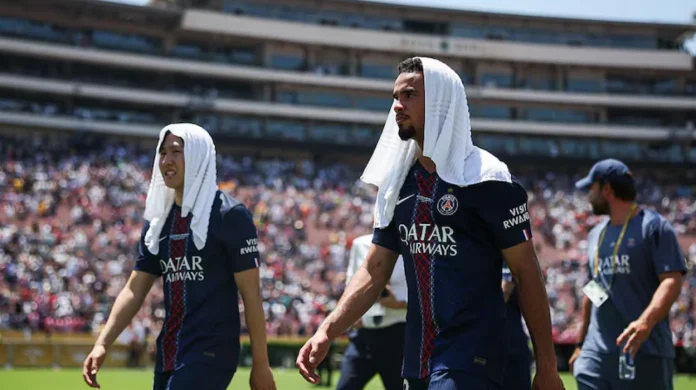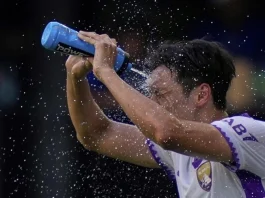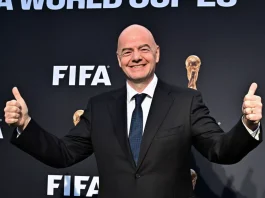The football market is stepping into the decisive period in the legal sense because the Dutch organization Justice for Players (JFP) has already filed a mass claim to FIFA alongside some European football associations in 2025. This move comes after the historic decision of the European Court of Justice (CJEU) in June 2024 that invalidated a variety of provisions in FIFA transfer regulations as a violation of EU law provisions on free movement and fair competition. The lawsuit aims at collecting heavy damages on behalf of thousands of professional footballers and demands a system related change in the transfer system of this sport.
In case of success, the case would shift the posture of power of the clubs and the players, reshape the norms of contracts and compel the propriety regulating bodies of football to reevaluate their regulatory provisions.
The legal foundations and scope of the lawsuit
The jurisprudence in support of this case is the decision that was made by the CJEU in 2024 that supported French footballer Lassana Diarra.
The CJEU ruling and its ramifications
The conflict of Diarra began when FIFA refused to grant him the International Transfer Certificate, basing the decision on the breach of the contract without a just reason. The court declared that the transfer rules of FIFA unlawfully restricted the freedom of movement among workers thereby seriously hampering the capability of players to negotiate good rates. In the ruling, some penalties of breaching contracts were compared to anticompetitive agreements of not trying to hire other clubs (no-poaching arrangements).
It overturned a regime that has been adopted since 2002, and opened up the prospect of joint litigation affecting potentially tens of thousands of players across the EU and the UK.
The scale and aims of the class action
Justice for Players estimates that roughly 100,000 players have been financially disadvantaged by FIFA’s regulations over the past two decades. Economic reports suggest an average career earnings reduction of about eight percent due to these restrictions. The lawsuit, filed under Dutch collective action law, seeks both monetary damages and structural reform—replacing punitive breach clauses with fairer, transparent transfer mechanisms.
Defendants include FIFA and national associations such as Germany’s DFB, indicating a legal battle with cross-border governance implications.
Financial implications for players and clubs
The transfer system’s economic impact reaches beyond legal theory, influencing wages, bargaining power, and competitive balance.
Impacts on player earnings and bargaining power
Under the contested rules, players risked fines, suspensions, and loss of income if they pursued opportunities outside the rigid transfer structure. The lawsuit argues this created a structural disadvantage, depressing salaries and signing bonuses that a freer market would have yielded.
If reforms follow a favorable ruling, players could gain stronger negotiating positions, broader mobility, and more equitable contract terms—shifting football’s labor dynamics significantly.
Consequences for club finances and transfer markets
For clubs, current rules have preserved leverage by ensuring compensation when players exit contracts early. Removing or softening these provisions could reduce transfer fee revenue, compelling teams to adjust budget strategies, talent pipelines, and contract negotiations.
Supporters of reform suggest that increased transparency and mobility could lead to a more efficient market, though such changes would require clubs to adapt their recruitment and retention models.
Legal and governance challenges ahead
The lawsuit unfolds against a backdrop of FIFA’s cautious regulatory adjustments and ongoing stakeholder dissatisfaction.
FIFA’s interim reforms and ongoing contention
In late 2024, FIFA introduced modified compensation calculations and shifted evidentiary burdens in disputes, aiming to comply with European law. However, groups like JFP argue these changes fail to address deeper anti-competitive structures. Legal analysts warn that piecemeal reforms risk prolonging conflict rather than resolving it.
The case therefore tests FIFA’s willingness to embrace comprehensive governance reform in response to binding judicial decisions.
The broader significance for sports law and labor rights
This challenge echoes the 1995 Bosman ruling, which dismantled nationality-based restrictions in European football. Jean-Louis Dupont, counsel in both cases, sees the lawsuit as a continuation of efforts to align sport with broader labor rights principles.
A successful claim could inspire similar challenges in other sports, reinforcing the precedent that athletes deserve the same protections as workers in any industry.
Social and ethical dimensions of player empowerment
The dispute is not only about legal codes and balance sheets—it is about the human element in professional sport.
Humanizing the “business of football”
Over the last decades, the rules of transfer commonly treated players as commercial entities in the bonds of contracts that frequently limited their individual agency. The petitioning case positions footballers as employees who can be mobile and treated fairly and their careers self-determined making the sport conform to the modern-day labor practices.
This view promotes an emerging mindset of the overall welfare of the players, which incorporates their mental health, economic sustainability, and post-retirement life.
Potential ripple effects on global football culture
Provided that FIFA and associations may be forced to change, there is the chance that the cultural transformation may be observed, with a prior emphasis on the transparency of decisions and accountability, as well as their fairness. Supporters, the participants, and the stakeholders can continue to use some form of governance that recognizes the commercial need but also upholds the rights of the individual.
This kind of a change can transform the identity of the sport, including transfer transactions, contract conventions, which radiates to football beyond Europe.
Navigating the future of football’s regulatory landscape
The next phase will determine how football reconciles competing interests under evolving legal and economic pressures.
The road to legal clarity and equitable governance
There needs to be frameworks that support both contractual stability and eliminate unfair obstacles to mobility so that this dispute can be resolved. The intellectuals see tough bargaining among legal experts, economists, and governance agencies in order to develop policies that can meet the demands of the supranational law and maintain the spirit of competition.
It will challenge the flexibility of the institutions that over time have been reluctant to change fast.
Preparing stakeholders for transformative change
The unions, clubs, and administrators of players have to expect the possible changes regarding transfer systems, wage arrangements, and resolution of disputes. Positive interaction between these groups may prevent chaos and embark on a football economy where opportunities and sustainability go hand in hand.
This collaboration can eventually make a sport that maintains its commercial viability without infringing the independence of involved individuals.
The conflict between the contractual control of football and player liberation represents a wider dilemma in world sport-the need to preserve tradition and commercial order and the desire to accept fairness and individual rights. The verdict of FIFA transfer court case would not only influence the future course of regulations on transfer of players but also shape up the moral and legal course of the sport in years to come. Football is the centre of global attention as it makes the choice of whether the spirit of governance should not be determined by the rules of the game, but by the rights of the players that bring it to life.




